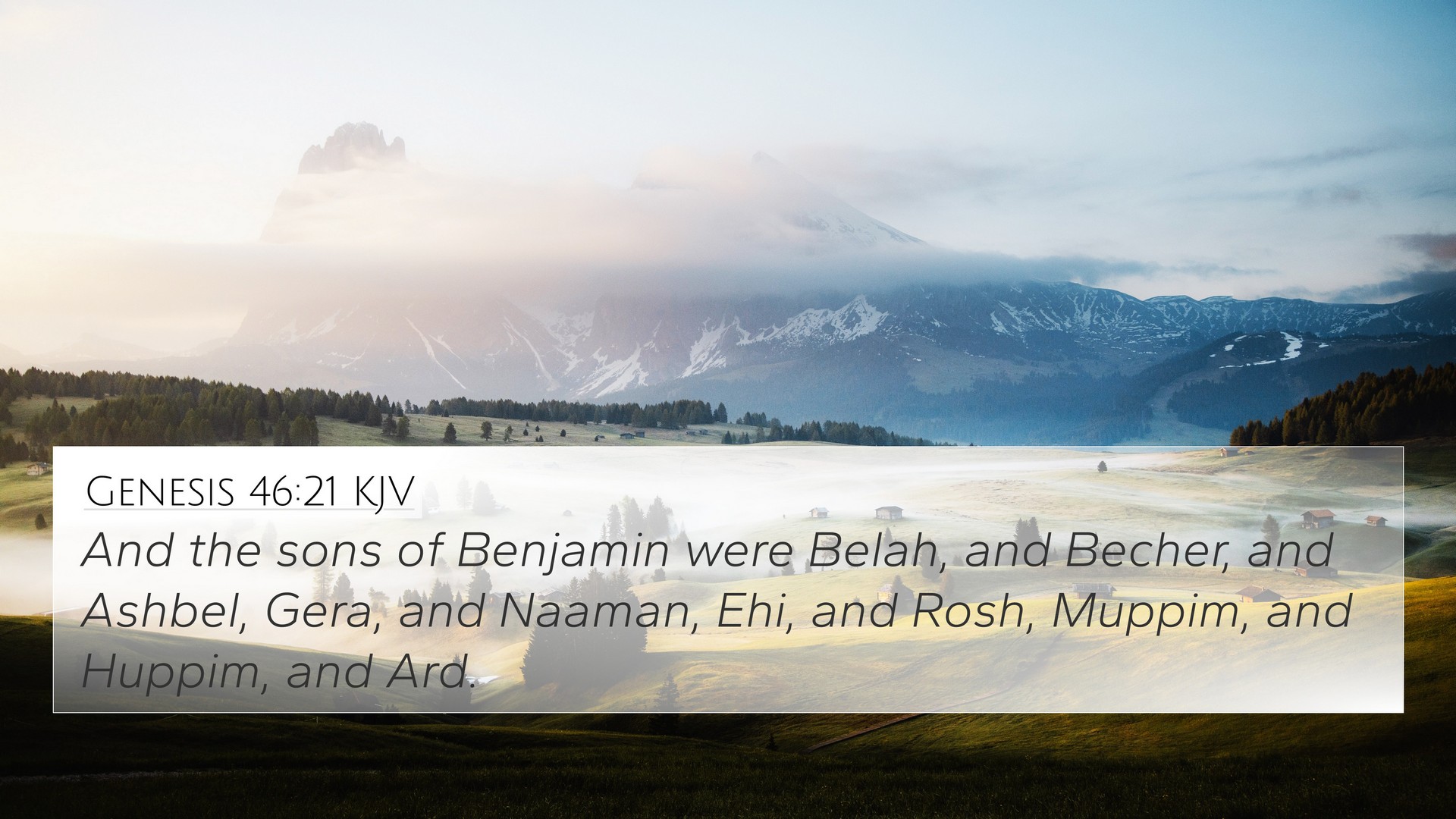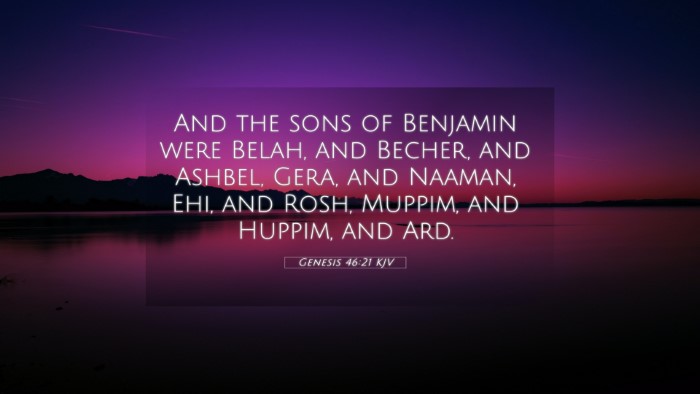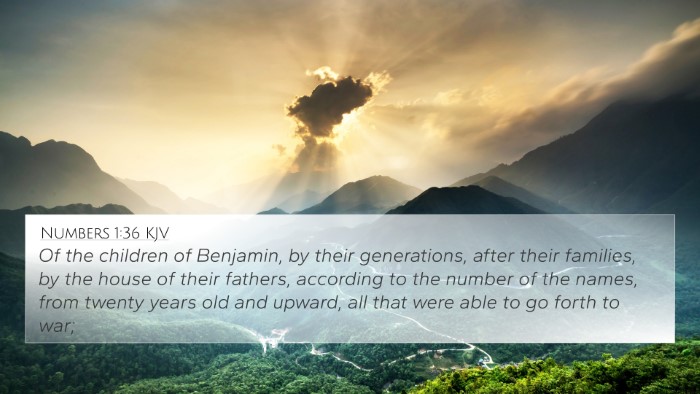Understanding Genesis 46:21
Genesis 46:21 states: "The sons of Benjamin were Belah, Becher, and Ashbel." This verse is part of the genealogical records
of Jacob's descendants and introduces us to the tribe of Benjamin. When analyzing this verse, we must understand the significance
of each name listed and the role of Benjamin within the context of Israel's history.
Significance of the Tribe of Benjamin
The tribe of Benjamin holds a unique place in the history of Israel.
According to Matthew Henry's commentary, Benjamin was the youngest son of Jacob and Rachel,
and his lineage plays a crucial role in the unfolding narrative of Scripture.
Albert Barnes notes that the names mentioned - Belah, Becher, and Ashbel - are indicative of the family structure
and the continuation of Jacob's line.
Adam Clarke expounds that the inclusion of Benjamin's sons hints at the importance of preserving familial ties
and tribal identity in the Jewish culture, especially during their time in Egypt and their eventual emergence as a nation.
Theological Implications
The listing of Benjamin’s sons can be seen from a theological perspective as a demonstration
of God's providence and the continuing promise made to Abraham. Henry mentions that despite the
trials faced by the nation, God's covenant with Abraham includes preserving these lineages.
Furthermore, Barnes emphasizes that the preservation of Benjamin's descendants will eventually
lead to significant figures in biblical history, including King Saul and the Apostle Paul,
both influential within their respective narratives.
Cross-References and Related Verses
This verse can be cross-referenced with multiple passages that illustrate the broader context
of Abraham's covenant and ecclesiastical lineage.
- Genesis 49:27 - Jacob's prophetic blessing over Benjamin.
- 1 Chronicles 8:1-3 - More detail on the genealogy of Benjamin.
- Judges 20:12-14 - The role of the tribe of Benjamin during the Israelite civil war.
- Philippians 3:5 - Paul's reference to being from the tribe of Benjamin.
- Matthew 1:2-3 - The genealogy of Jesus, including mention of the tribe of Judah, but demonstrating
the inclusion of all tribes.
- Deuteronomy 33:12 - Moses pronounces a blessing over Benjamin, describing him as beloved.
- Romans 11:1 - Paul speaks of God's faithfulness to the remnant of Israel, of which Benjamin was a part.
Connections Between Bible Verses
This verse exemplifies the connectivity throughout Scripture, illustrating God's ongoing plan for
redemption extending from Abraham to the New Testament.
For example, Clarke highlights the significance of Benjamin in relation to Saul's kingship.
This lineage connects to the larger narrative of King David, who would come from the tribe of Judah,
emphasizing the theme of unity and diversity within God's chosen people.
In particular, understanding the connections between Old and New Testament figures contributes
to a comprehensive view of God’s redemptive narrative.
Applying Genesis 46:21 Today
For readers today, Genesis 46:21 serves as a reminder of our roots and the importance of
understanding our spiritual heritage. Just as Benjamin's lineage is honored in Scripture,
our spiritual family continues to bear significance.
Utilizing tools for cross-referencing, such as a Bible concordance or a cross-reference Bible study guide,
can enhance one's ability to grasp these connections, making Scripture more relatable and meaningful.
Conclusion
In summary, Genesis 46:21 not only lists the sons of Benjamin but also underscores essential
themes within the biblical narrative. Through a thorough investigation of this verse and its connections,
one can appreciate the nuances of God's covenantal promises and the vital role each tribe plays
in the grand tapestry of Scripture. By exploring the links between different verses, we enrich
our understanding and deepen our faith.









